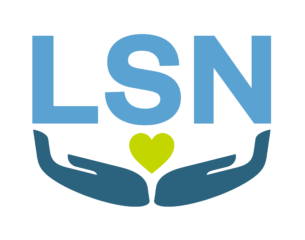All students using stimulant medications for ADHD should know the following information.
If you take medication, know The name of it and how it works.
The most commonly prescribed medications for ADHD include:
- Ritalin, Concerta (methylphenidate)
- Vyvanse (lisdexamfetamine)
- Adderall (mixed amphetamine salts)
- Dexedrine (dextroamphetamine)
- Focalin (dexmethylphenidate)
Ritalin (methylphenidate), Adderall (mixed amphetamine salts), Dexedrine (dextroamphetamine) and Focalin (dexmethylphenidate) come as either short-acting (usually 4 hours) or long-acting (6-12 hours) preparations. You can find more information about ADHD, diagnosis, and treatment at the National Institute of Mental Health.
If you need stimulant medication to concentrate in high school, you most likely will need medication to concentrate in college.
Approximately 70% of individuals with ADHD continue to have problems with attention throughout their lifespan.
Stimulants improve cognitive functioning, but you still have to put in time studying and attending classes.
Taking medication before classes can help you concentrate on what is going on around you. Stimulants can also help you stay focused while you are reading and, thus, improve your reading comprehension The Learning Center offers an Academic Success Program, providing services for undergraduate, professional, and graduate students who have a documented attention-deficit/hyperactivity disorder (ADHD). See learningcenter.unc.edu/ldadhd-services/ for more information.
ADHD affects all aspects of life – social, home and employment.
It is important to assess how much the symptoms of ADHD are affecting your functioning in all of these settings and to take your medication accordingly. Driven to Distraction by Edward Hallowell and John Ratey and ADD Friendly Ways to Organize Your Life by Judith Kolberg discuss coping with ADHD.
It is important to take medication as prescribed by your provider.
Don’t self-medicate. Many students have a mistaken notion that, if one pill works well, two will work even better. While that may be true for other medications, that is not the case with stimulants. A specific amount of medication fits each person’s brain chemistry, which is why you should work with a medical provider to periodically reassess whether your dosage is working for you.
It is illegal to share your prescription medication.
Federal law states that all prescription medications should be kept in their original container and labeled with your name and the name/dose of the medication. It is a criminal offense and a violation of the UNC-CH Honor Code to obtain stimulant medications by fraudulent means, possess these medications without a prescription, or give or sell these medications to others.
Stimulant medication should never be used while using drugs or alcohol.
Taking stimulants affects the metabolism of alcohol in the body. Mixing the two can result in higher blood alcohol levels and increase the risk of alcohol poisoning. Critical signs of alcohol poisoning, where a person needs medical care, include mental confusion, stupor, coma, vomiting, seizures, slow breathing, and low body temperature. Additionally, do not mix recreational drugs and stimulant medications.
Check-ups are important.
Check-in with CAPS when you arrive and then as directed by your provider usually every month to every three months. Once you have established care with CAPS, you will follow up as directed by your provider, usually every month to three months. You will also have your heart rate and blood pressure checked at each visit to make sure you are not experiencing harmful side effects from your medication. In addition, be sure you visit a primary care physician at least once per year for an overall examination. As with all chronic conditions and medications that are taken routinely, it is important to have a regular check-up.
Report any side effects promptly.
Do not stop your medication on your own. Talk with someone about addressing these side effects. A change in medication or reduction in dose may be all that you need, but let the professional decide that course of action.
*Adaptation of Top Ten Things I Wish Students With ADHD Knew About Their Medications, Patricia O. Quinn, M.D., The Official Newsletter of the Association on Higher Education & Disability, April 1998, Vol. 22, No. 2

